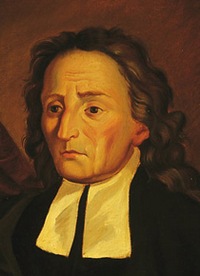Heroes 10: Giambattista Vico (sort of)

Somewhere in his autobiography, Casanova mentions a meeting with a Hungarian officer who didn’t speak French. In the eighteenth century, this was most unusual, at least among the well-to-do travelers that were Casanova’s usual company. Fortunately, the Hungarian officer and Casanova both knew some Latin, so conversation was easy.
No one, back then, would have denied that Latin was useful. It was also important: it was the language of international science and scholarship. Moreover, it was the language one had to learn to read law, because Roman legal traditions were still important. Writers and poets carefully read ancient texts so that they might emulate these examples. In Catholic countries, Latin was used in the church. If you wanted to read theology, you had to understand Latin, Greek, and Hebrew. Because of the importance of the old languages, every European city had a Latin school.
However, few people were interested in Antiquity. Of course it came in handy to know a bit about ancient history and ancient civilization, because it enabled you to understand the Bible and the Corpus Iuris. But studying the distant past for its own sake, just because you liked to be surprised or delighted in a good story, was believed to be frivolous.
After all, ancient texts contained grave errors. People had understood this for the first time when the Americas had been discovered: nothing had prepared the European scientists for the existence of a continent not mentioned by any of the ancient authorities. Explorers went on to discover mistakes in the ancient world maps while Scaliger proposed a chronology of the ancient world that contradicted the Bible. Copernicus proposed the hypothesis that the earth moved around the sun; Stevin was the first to realize that this was not just a hypothesis; Galileo offered additional evidence; Newton explained why it had to be this way. Early in the eighteenth century, few people would have denied that, compared to the ancient scientists, the modern ones were better.
This created a serious problem. The new scientific method was based on direct observation of the phenomena. The information that was obtained, was organized in broad generalizations, and one thing was obvious: nature’s law was not written in Latin, but in mathematical equations. This new and successful method added to the irrelevance of the study of Antiquity. If you wanted to know the truth, you no longer needed the ancient books.
The study of the distant past might have come to an end in the eighteenth century. But it didn’t.
In 1708, Giambattista Vico from Naples published an article in which he defended the study of the ancient texts against people who, inspired by Descartes, had claimed that the new scientific method had made all other sciences obsolete. (Actually, it was not an article but a speech. Scholarly articles are an invention of the nineteenth century.) Vico’s arguments have been repeated ever since, with variations. Still, the basic pattern is usually the same as Vico’s:
- The scientific method, it is admitted, has been extremely successful.
- However, the scientific method is successful only when the data can be reduced to simple numbers. Only then is it possible to arrange them as mathematical equations.
- If, on the other hand, the data are not so simple, the scientific method is useless. If your data consist of the products of the human mind (language, behavior, religious ideas, works of art, archaeological finds, and so forth), we need a different approach, because we must first establish what is meant.
- This means we may need more than one method. Reading ancient texts or studying works of art, for example, presume different explanatory models.
- There are no simple, hard facts. When the data are so varied, we cannot claim to know the only possible interpretation and we must take into account that the interpretation can change. All our conclusions are temporary.
- Studying the artistic, moral, historical, or social realities may be less concrete or useful than studying the physical reality, but it can still be very meaningful. The arts, our morality, our past, and our social relations are the things that really matter.
Useless but meaningful: although Vico did not say it exactly like this, the summary above gives an idea of what has, since his time, become a common defense of the humanities. There’s more than one method. It’s the root of the idea that there are “two cultures”.
Personally, I am unconvinced, because the argument is based on a caricature of science, as if there’s no beauty in a scientific proof. It also is too modest about the arts, which can be quite useful and can have direct consequences for our daily lives. Besides, literature, art, and history are fun and I really don’t see any need to apologize for enjoying them.
